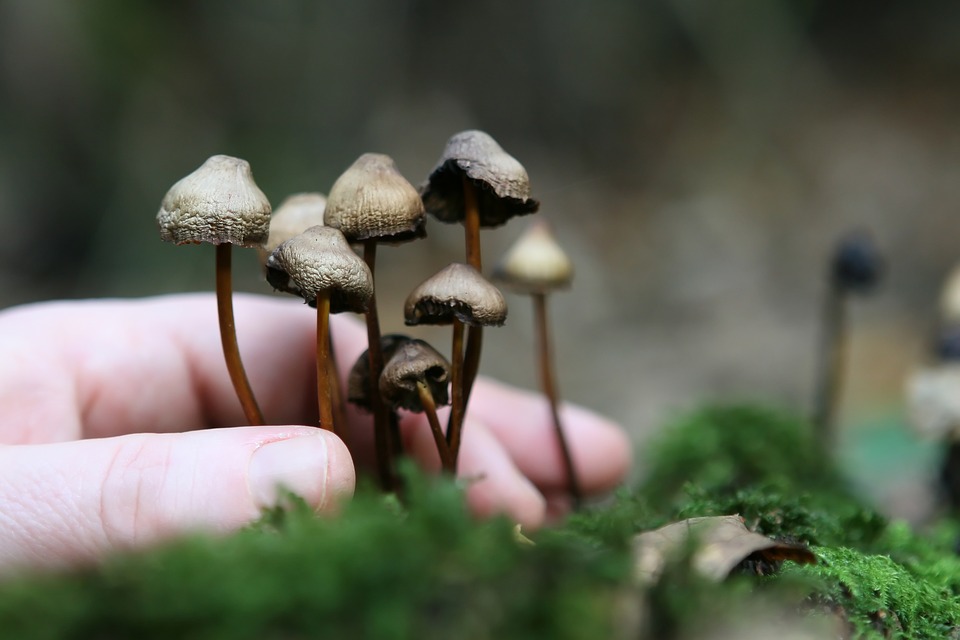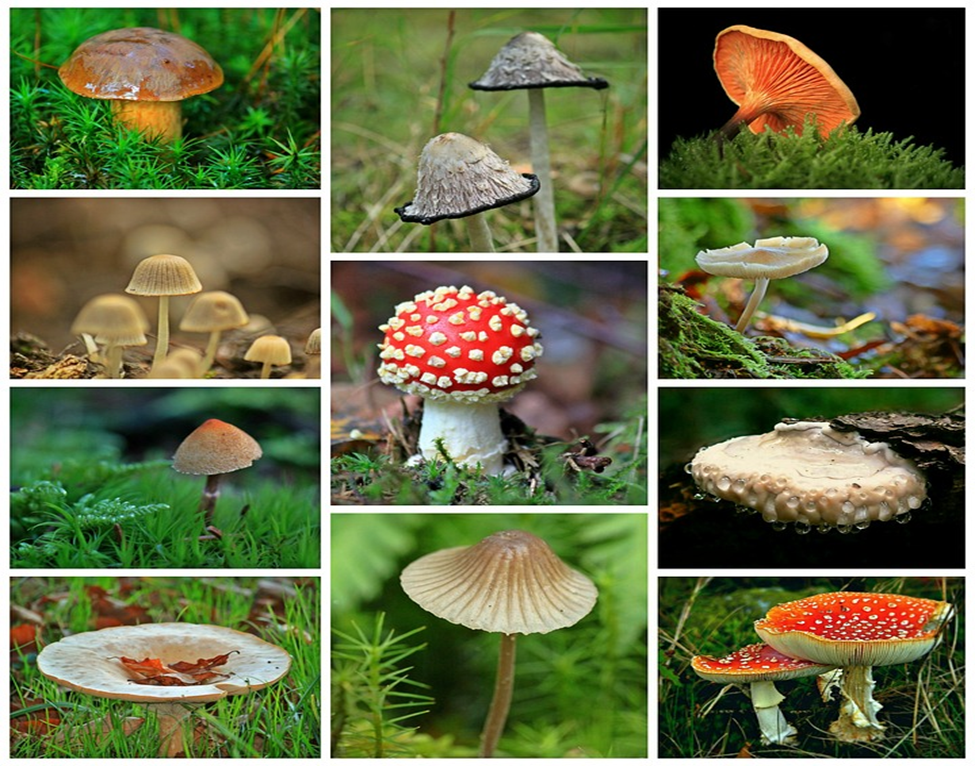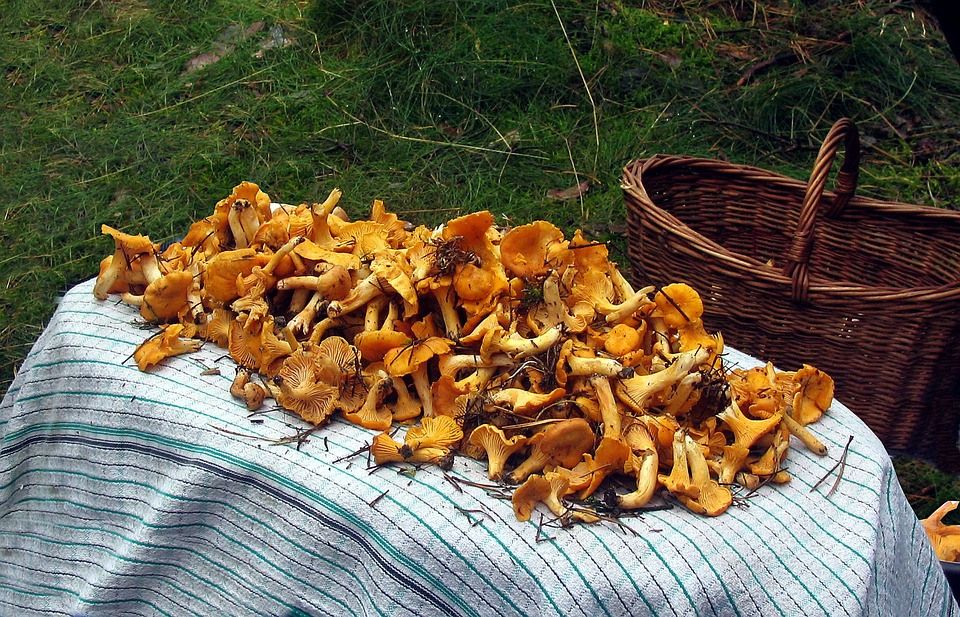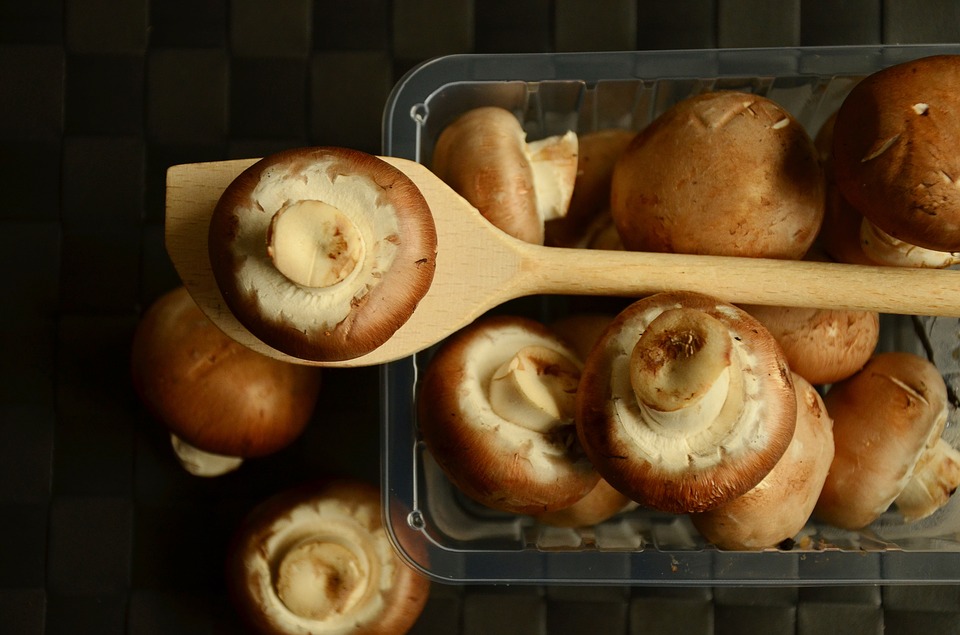Mushrooms are not plants, nor are they animals. In fact, mushrooms are within their very own kingdom known as Fungi. They appear to grow like plants, yetlack the many key components of plants such as roots, seeds, chlorophyll, and the ability to produce their own food. Like animals, they consume their food, but not by grazing or hunting. They break down organic matter, similar to bacteria. This action helps to recycle nutrients in the natural system. By being such a unique life form and occupying their very own kingdom, mushrooms, and other fungi, have many exceptional characteristics. Among these characteristics are the medicinal and nutritional properties mushrooms offer.
As Old as Time:
Using mushrooms as medicine and food is nothing new. The gathering of wild mushrooms has occurred since ancient times and was known to many civilizations including the Egyptians and Vikings. Later cultivation practices began in various places such as Asia and Europe. So, what were these all these civilizations using mushrooms for? Pretty much the same thing we use them for today, including food, immunity boosters, disease fighters, and even as hallucinogenic agents.
We incorporate mushrooms into our diet through adding them to salads, stir-fries, and a plethora of other dishes, drinking them as teas, adding them as powdered extracts to our smoothies and coffee, or taking encapsulated supplements. Method of consumption is up to you, just be sure to take the proper dose, a quality product, and variety of mushroom that suits your needs.
Mushrooms as a Whole:
- To supplement with mushrooms can be a confusing path to go down. To start with, there are so many varieties of mushrooms (over 100,000 species), health claims, and brands of supplement companies to filter through that it can be a daunting task. While I am not going to cover anywhere close to every species of mushroom, I am going to highlight the ones that are most often sold as supplements or have claims to improve health.
Mushrooms have a special type of polysaccharide called beta-glucan. The beta-glucan in mushrooms is extremely complex and large in size. This allows for the enhancement to our immune systems. While beta-glucans aren’t curing any disease on their own, they have the ability to bump up the power of our immune function. They accomplish this by imitating microbial invaders and therefore stimulating our immune response.
Most mushrooms, through improved immunity, antioxidant capabilities, and adaptogenic properties, are often used to treat or stave off certain types of cancers, and helps our bodies and minds deal with the stress of our everyday lives.
Mushrooms also offer the follow vitamins and minerals:
Vitamin D: Mushrooms are an excellent source of Vitamin D if they were exposed to UV light, mostly occurring when dried in the sun. The vitamin D they offer is in the form of D-2. To make sure your mushrooms have D-2, read the package carefully. Check how they were grown and processed. Consuming adequate amounts of Vitamin D creates healthy bones and teeth and helps improve mood and energy. So, your happy healthiness may just depend on these fungi.
Fiber: Mushrooms definitely take after vegetables here. We all know fiber is good for us and most Americans don’t get enough. Consuming inadequate fiber equals poor GI health and starving gut bacteria. Not feeding your gut bacteria opens up a whole other set of problems. Keep your gut happy by eating your mushrooms.
B Vitamins: Yep, mushrooms have them all, except for B-12, because that only comes from animal sources. And B-vitamins are vital in ALL aspects of our health. Deficiencies in them create problems with absorption of certain minerals and messes up our metabolism, sleep, mood, etc. There are serious illnesses that can result from deficiencies of B Vitamins that can cause heart failure and neurological problems. In short, eat your mushrooms to help get your daily dose of B-Vitamins or else.
Many, Many Minerals: Depending on the variety, you can glean a wealth of micronutrients (minerals) from consuming mushrooms. They offer almost the full gamete of minerals including calcium, copper, potassium, magnesium, manganese, zinc, phosphorus, iron, and selenium. These micronutrients are critical to all areas of your health, from brain function to sexual maturation and beyond. Think you can go without some of these? Think again or your body and mind will pay the price.
Protein: As the old-time TV detective Columbo would say “Oh and one more thing”. Mushrooms also offer protein. While they may not be the KC Strip you are thinking of, they do offer about 1-2 grams of protein per cup, with very few calories. This is great if you need to bump up your protein without bumping up your caloric intake. Also this makes them pretty useful to all the non-carnivores out there.
Powerhouses in the Right Dose:
Now you know that mushrooms are little nutritional dynamos, but how do you get enough of them to make a difference in your health?
Often an extract is created from most mushrooms to create a dried powder. This powder is either encapsulated, put into a bulk powdered supplement, or made into a tea. A basic extract is essentially ~10 times as potent as the actual mushroom. This means that 5 grams of extract is similar to 50 grams of whole mushroom. Creating an extract allows consumers to take in adequate amounts of the mushroom in a manageable way to reap the therapeutic benefits.
Mushrooms, in general have many of the same nutritional or medicinal benefits. However, different species of mushrooms have different aspects that make them more or less right for you. Below is quick review of some of the top mushrooms you will most likely come across if you begin delving into the world of mushroom supplementation and teas. This will offer a guide of which ones to choose, based on benefits, and offers possible dosing options and brands you can choose from.
To Each Their Own:
Here’s a list of some top mushroom variety choices. Always remember that within the same genus of mushrooms there are both poisonous and safe-to-eat varieties. I say safe-to-eat, because all mushrooms are edible…some only once. Make sure you get the species that’s 100% known to be safe-to-eat.
Ganoderma lucidum: Commonly used in Chinese medicine, Reishi is the name this mushroom typically goes by. It’s sometimes called the “Mushroom of Immortality”. The many benefits of Reishi include anti-oxidative effects, therapeutic effect on insulin resistance, reduction of the risk of prostate cancer, and helping treat a variety of conditions associated with metabolic syndrome.
Reishi also improves sleep and decreases the symptoms of chronic fatigue syndrome. However, these benefits do not occur right away. Improvements to sleep usually take 3-5 days and it can take 4-6 weeks before the positive effects are felt in relation to chronic fatigue syndrome.
Lentinula Edodes: Yes, you have definitely heard of this one and no it’s not a cuss word. The well-known Shiitake mushroom is often put into immunity blends of mushrooms. This is usually accredited to the fact that the Shitake has anti-viral capabilities and can ward off the flu and infections. It’s also touted as an aphrodisiac. That’s a nice combo. Less illness and more love.
Inonotus obliquus: This a polypore mushroom that grows on birch trees. One of the lifecycles of this fungus produces a black crusty fungal body called Chaga. The Chaga precedes the actual spore-forming reproductive cycle. Chaga is taken both in supplement and tea form. It can also be found in coffee blends. Chaga is consumed to boost immunity, reduce inflammation, fight cancer, and help us deal with daily stress.
Grifola frondosa: I first heard of this mushroom by the name of hen-of-the woods. I later came to know is as Maitake. This mushroom has been used as a means to reduce blood glucose levels and treat hypertension. As with the other mushrooms it also boosts immunity and reduces inflammation. It’s also used for tumor suppression and therefore seen as an effective cancer fighter.
Trametes Versicolor: This little guy grows all around the world and comes in a variety of earth tone colors. Most often it’s referred to as Turkey Tail and is used in many mushroom blends that promote improved immunity. It’s used to help fight cancer, but also reduce the negative impacts of chemotherapy. It has also been used to help treat hepatitis B and malaria in some cases.
Suggested Dosage: 200-400mg/day of each variety: (Reishi, Shiitake, Chaga, Maitake and Turkey Tail)
Suggested Brand: Real Mushrooms 5 Defenders – A Blend of 5 High Quality Mushroom Extracts (contains all 5 of the mushrooms listed above: Reishi, Shiitake, Chaga, Maitake and Turkey Tail)
Cordyceps Sinensis and Cordyceps Militaris: These species of mushrooms are often just referred to as Cordyceps. While yes, they are both Cordyceps they aren’t the same thing. Both offer amazing health benefits that include immune function enhancement, boosting energy levels, combating fatigue, lowering blood sugar, and protecting kidneys from toxins. The big difference in the 2 species is that Cordyceps Sinensis is a quirky little fungus that actually grows on a caterpillar! You can imagine this is a pretty rare and extremely expensive product to get a hold of. So, if you are seeing it being sold anywhere for anything less than thousands of dollars, you are being sold a cheap lab grown imitation. Usually what you are getting is the variety O. sinensis mycelium. You do NOT want this variety. The good news here is that you can purchase Cordyceps Militaris (from a reputable seller) and actually be getting the real (and beneficial) fruiting bodies of the Cordyceps mushroom. You DO want this variety.
Suggested Dosage: 1,000 – 2,000mg/day
Suggested Brand: Real Mushrooms – Cordyceps-M
Hericium Erinaceus: Ferociously known as Lion’s Mane, this fungus has been popular in Asian cultures since 2,000 BC. Lion’s Mane is known to both improve cognition and protect against cognitive decline. It also reduces anxiety and depression, improving mood and the overall feeling of wellbeing. Lion’s Mane stimulates immune function and helps with inflammation, including treating diseases caused by inflammation and those that cause the inflammation.
Suggested Dosage: 1,000mg/day unless you are highly sensitive to this one. Try half a dose to start with.
Suggested Brand: Real Mushrooms Lions Mane Extract
Agaricus: This is a genus of mushroom with (as mentioned above) species that are both poisonous and safe-to-eat, including the common button mushroom. The species that is often used for medicinal purposes, and is traditionally grown in Brazil and Japan, is known as Agaricus blazei.
Benefits to this mushroom include treating arteriosclerosis, hepatitis (improves liver function in Hep B patients), hyperlipidemia, diabetes (reduces blood glucose levels), dermatitis, and cancer. And as a fun fact for cat lovers everywhere…it’s even been used to treat some diseases in our feline friends.
Suggested Dosage: 400mg 3x/week
Suggested Brand: Doctor’s Best Best Agaricus Blazei Veggie Caps with Black pepper extract
Phellinus linteus: A species of mushroom known to many as Meshima, which mean Woman’s Island. This odd little fungus is shaped like a hoof and grows on mulberry trees. It has a bitter taste and is often consumed in tea form. The many benefits it offers include helping with the ailments of the GI tract and working as an anti-cancer agent, especially against breast cancer. It’s also used to help treat excessive bleeding, such as during menses or intestinally.
Suggested Dosage: 800mg/day
Suggested Brand: Mushroom Wisdom Super Meshima Tablets
Proceed with Caution:
- If you suffer from any autoimmune diseases, chronic conditions, cancer, allergies, or take certain medications, make sure mushrooms won’t have any adverse effects.
- As with anything you put in your body, know what you are buying. Obtain mushrooms, teas, and extracts from reputable sellers, make sure the company tests for purity and quality of the mushrooms, and NEVER consumer something that you aren’t sure of the species or if it’s poisonous or not.
- Honor your body and check in with it. If something isn’t working for you, don’t keep using it. The idea here is to improve your health, not send it into a lightning speed downward spiral. There are soooo many options out there you can take advantage of. Use ones that make your body and mind reach the top of their game.
- Make sure the type of mushrooms you want to purchase are legal. Not judging here, just giving you a heads-up.
Mushroom Honesty – No Grains Please
Ok, so you have learned what mushrooms can do for you, what varieties of mushrooms are out there, suggested doses and brands to choose from, so you are ready to start inhaling shrooms left and right? Not exactly. Another thing to consider is if your mushroom is being honest with you, or more appropriately stated, is your mushroom seller being honest with you? Sometimes that answer is no. Remember how I mentioned something about beta-glucans earlier. Well they are pretty important in seeing if you have a mushroom that will do you some good or really just act as a health-less starch. Sometimes growers and sellers grow what’s called “mycelium on grain”. What this means is that the mushrooms were spawned on grain and are not actually the medicinal mushroom you are paying good money for. When choosing mushroom products, look for ones with a high content of beta-glucans and a very low percentage of starch. You will also need to look for words like “No added starch, mycelium, or grain of any kind” “Contains Fruiting body or supplies Polysaccharides”. If you see these things listed, you’re getting the real deal mushroom and not some worthless overpriced grain product.
Get your Shroom on…Responsibly
Ok, NOW you are ready to take off in the mushroom races. Just remember these few things:
- Buy quality:Look for high content of beta-glucans and a very low percentage of starch in your mushrooms. Search out key words like “No added starch, mycelium, or grain of any kind”. Know your seller
- Test to see what works for you: You know your body better than anyone. If it works, keep doing it, if it doesn’t, STOP! And know if mushrooms will interact with any meds you are taking or medical conditions you may have
- Don’t put anything poisonous or illegal into your body: This is just an overall good point to remember for all things in life
- Know some mushroom benefits take a while to see the results: Patience is a virtue as they say
There you go my friends. Hopefully, you are now wiser in the way of the mushroom and feel confident to shroom on and conquer the world one medicinally and nutritionally splendid fungus at a time.
About The Author:
Brian Bishop is a true health and nutrition enthusiast. He loves to read, watch and listen to anything about health. He is the best nootropics guide as he is always experimenting on himself for best results. Brian wants to share his knowledge so others can enjoy the benefits.





